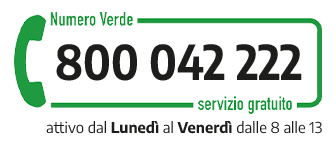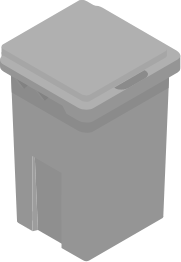Porta a Porta: Lombardo (MSBC), 'Bologna does not leave the door-to-door service, which to date is the best method of sorting, it only puts in bins for undifferentiated waste. Another fake news to alarm people and go against the new service in Messina'.
Several citizens and some former city councillors, certainly among those most reluctant to change, continue to erroneously emphasise on social networks or in some press releases that Bologna would solve the waste problem by modernising its collection service. They would not continue with door-to-door collection, returning to technological bins, however. However, as often happens, one reads the headlines and not the news, because Bologna is not going back to door-to-door, but is moving into the future, continuing with door-to-door separate waste collection, and only collecting undifferentiated waste in bins, which are accessed with a magnetic card. This is with the main objective of understanding who does not differentiate, and to make the 'punctual' tariff calculated on the number of deliveries of undifferentiated waste, so as to make those who do not differentiate pay more, so paradoxically the bins in Bologna have been positioned not to be used or used as little as possible'. So says Giuseppe Lombardo, president of Messina Bene Comune, in response to those who say they are against the door-to-door system launched in the city, citing the example of Bologna. "In truth then," Lombardo continues, "Bologna, which continues to differentiate and is at 51%, is not abandoning the door-to-door system, it will only continue by making fewer passes for the collection of glass, wet waste and plastic, while undifferentiated waste will be placed in the bins. After several analyses and studies, we confirm again today that door-to-door was the only useful way to start differentiating properly in Messina. The decision to collect waste at home helps users during an epochal change and, in the meantime, is one of the easiest ways to get used to differentiated waste and the most direct way to control users in a timely manner. It is a method that works in many Italian cities and has given excellent results, and door-to-door serves as an environmentally friendly practice to reduce the consumption of raw materials. As far as the containers and wheeled containers are concerned, they have been purchased for as many households and commercial users as there are, there is no shortage of them, and they are being distributed regularly and on time, I would add, if we cooperate instead of spreading half-news.





